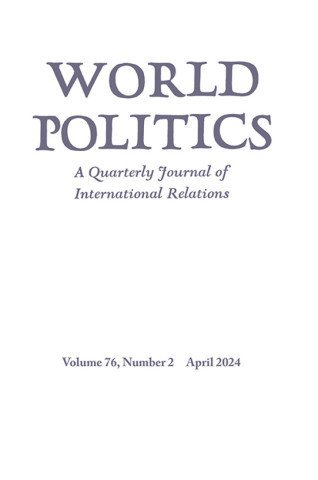The Effect of Relational Power Conception on International Power Studies
IF 2.5
1区 社会学
Q1 INTERNATIONAL RELATIONS
引用次数: 0
Abstract
Despite the expansion in the field of power studies as one of the key concepts of social sciences and especially in international relations, the scope of ambiguity in this field is very extensive. Perhaps it is for this reason that the terms "controversial" and "contentious" are considered by most analysts as the most basic features of power. The mentioned condition can be considered from different dimensions; In particular, from the various perceptions that have been formed about the nature, function and constituent elements of this category, as well as how the link between its two central components, namely "resources" and "control of effects and results", has been formed. In any case, assuming that any conception of power has a direct impact on the process of "conceptualizing the world politics"; the focus of this study is on how the "relational conception" as a multidimensional and productive approach affects the international studies of power. The main question is: Based on the evolution of the international literature on power, how effective has been the relational conception of power? The main hypothesis is: In the context of the international power literature, the “relational” conception (power to) has provided the setting for the creation and reinforcement of a multidimensional view of power in the form of “four-dimensional typology”, “Global orders and Civilizations” and “Global Governance”. The research method of this study is explanatory.关系权力观对国际权力研究的影响
尽管权力研究作为社会科学的关键概念之一,特别是在国际关系领域得到了扩展,但该领域的模糊性范围非常广泛。也许正是因为这个原因,“有争议”和“有争议的”被大多数分析人士认为是权力的最基本特征。可以从不同的维度考虑上述条件;特别是,从对这一类别的性质、功能和组成要素形成的各种看法,以及它的两个核心组成部分,即“资源”和“对效果和结果的控制”之间的联系是如何形成的。无论如何,假设任何权力概念都会对“世界政治概念化”的过程产生直接影响;本研究的重点是“关系概念”作为一种多维的、富有成效的方法如何影响国际权力研究。主要问题是:基于国际权力文献的演变,权力的关系概念有多有效?主要假设是:在国际权力文献的背景下,“关系”概念(权力)为以“四维类型学”、“全球秩序与文明”和“全球治理”的形式创造和强化多维权力观提供了背景。本研究的研究方法具有解释性。
本文章由计算机程序翻译,如有差异,请以英文原文为准。
求助全文
约1分钟内获得全文
求助全文
来源期刊

World Politics
Multiple-
CiteScore
8.40
自引率
0.00%
发文量
24
期刊介绍:
World Politics, founded in 1948, is an internationally renowned quarterly journal of political science published in both print and online versions. Open to contributions by scholars, World Politics invites submission of research articles that make theoretical and empirical contributions to the literature, review articles, and research notes bearing on problems in international relations and comparative politics. The journal does not publish articles on current affairs, policy pieces, or narratives of a journalistic nature. Articles submitted for consideration are unsolicited, except for review articles, which are usually commissioned. Published for the Princeton Institute for International and Regional Affairs
 求助内容:
求助内容: 应助结果提醒方式:
应助结果提醒方式:


